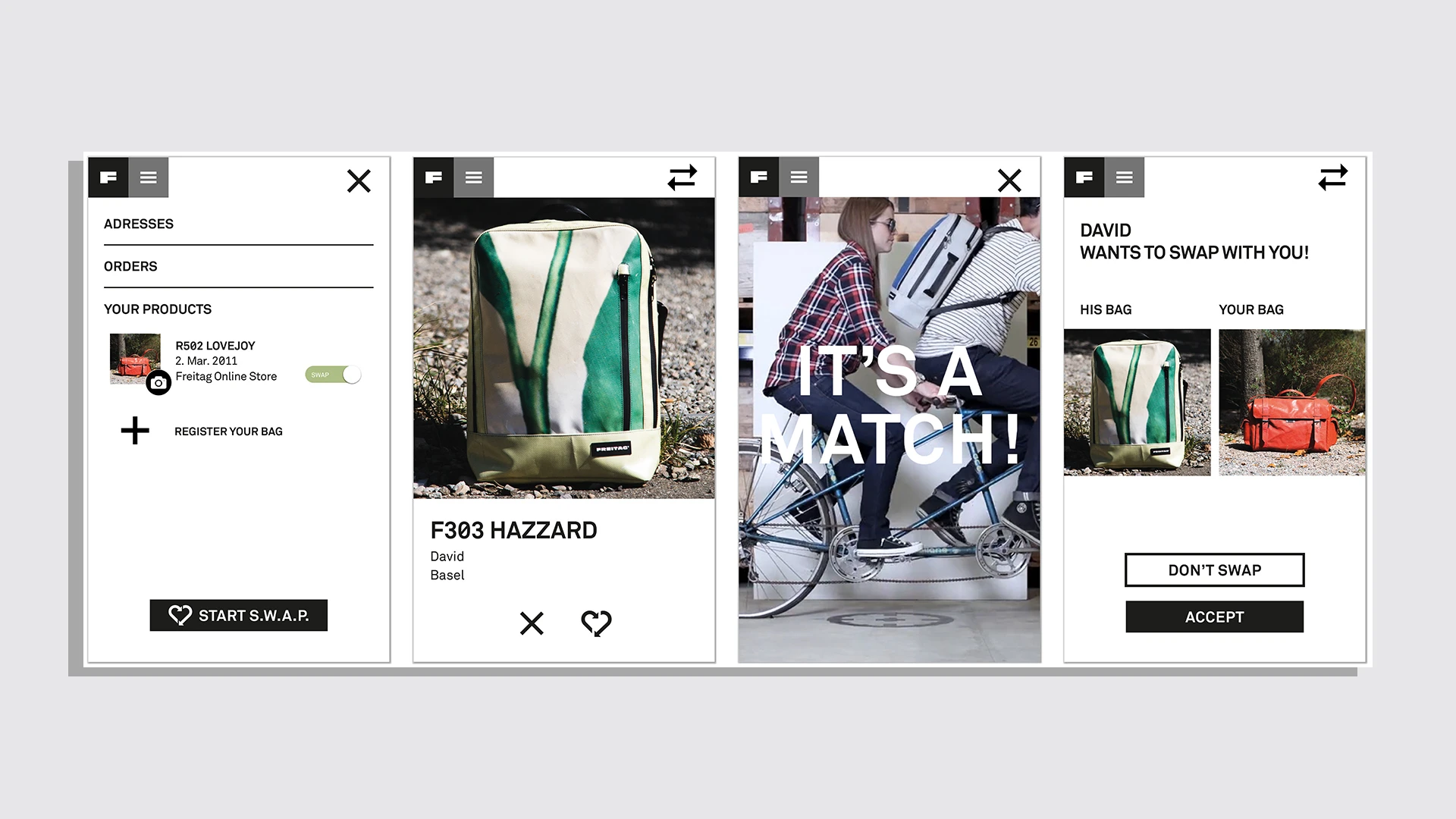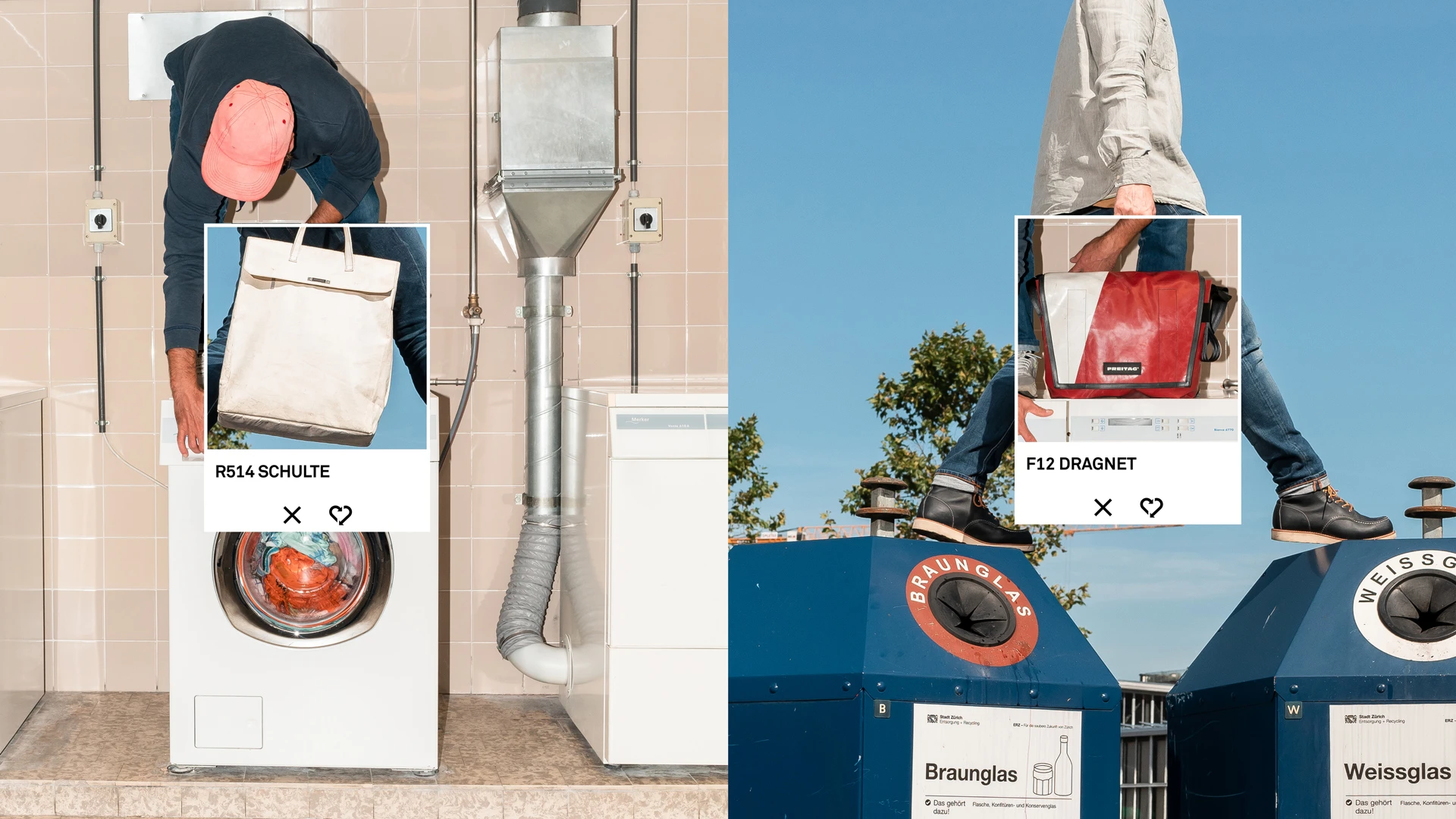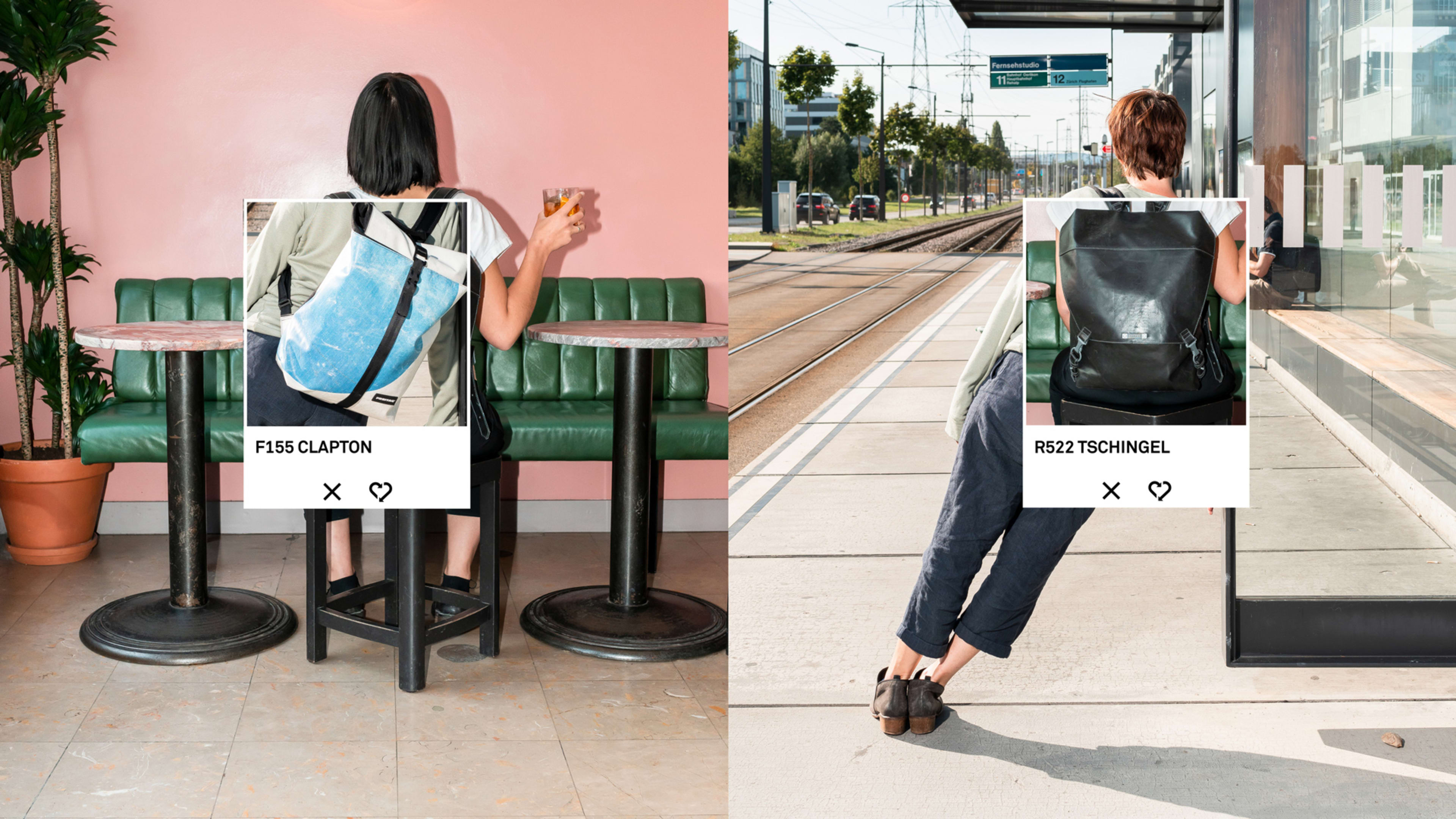On a new platform that it calls an “anti-shop,” the bag company Freitag doesn’t want to sell you anything. Called S.W.A.P.—or Shopping Without Any Payment—the app is designed to help customers who have an old messenger bag sitting in a closet trade with someone else in the same situation.
“I think it all starts with the fact that we think it makes sense to own objects that last,” says Elisabeth Isenegger, who leads international communications at the Switzerland-based company. Freitag is known for upcycling old shipping tarpaulins into its products; before being made into a bag, the tarp might have had several years of use on the back of a truck. As a backpack or bag, it can last even longer. “They last for a long time, and over time, the style or the needs of an owner can change,” she says. “We want to prevent the bags from ending up in a closet after so many years.”

The new mobile platform, which looks like an app but doesn’t require a download, works like Tinder. Freitag owners upload a photo of their old bag, and then start swiping right on any other bags that look interesting; when two bags have a match, the owners can connect to coordinate the swap. No money is exchanged.

Some other companies have resale platforms for their own products—Patagonia, for example, started taking back old clothing to repair and resell it in 2017, and other brands have followed. But Freitag wanted to do something different. Someone who wants to resell an old backpack can still use a platform like eBay, but the new app is designed to be more fun. Because each bag is unique, since it’s made from a individual old tarp, there’s a sense of discovery as someone swipes.
While it’s possible that the company might lose a few sales by helping people trade, Isenegger says that sales aren’t the company’s only priority (“otherwise, we would probably not start with producing robust bags that can last for decades.”) As when Patagonia launched an ad asking customers to buy less, it might even help the company’s bottom line. Freitag’s team hopes that the platform can inspire consumers to reconsider buying new products in general. “We would like to make people think about the way they consume, and to make them think about, ‘Do I really need have something new?'” says Isenegger. “Maybe this feeling of wanting something new doesn’t necessarily have to be something that uses new resources, but it can be something secondhand as well.”
Recognize your brand’s excellence by applying to this year’s Brands That Matter Awards before the early-rate deadline, May 3.
